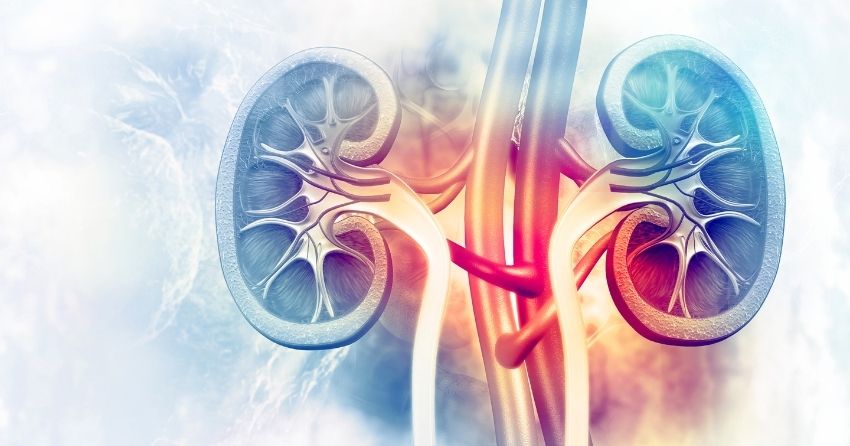Keeping Kidneys Alive and Kicking: NMN Fights Off Age-Associated Susceptibility to Acute Kidney Injury

Our kidneys are essential organs that function to keep our blood supply clean and healthy. When your kidneys become temporarily damaged or injured, known as acute kidney failure, they suddenly become unable to filter waste products from your blood, dangerous levels of wastes may accumulate, and your blood's chemical makeup may get out of balance. Acute kidney failure can be fatal and requires intensive treatment, but it may be reversible. If in good health, people can recover normal or nearly normal kidney function.
As we age, the incidence of acute kidney injury (AKI) increases. Age-related cellular deterioration and an impaired response of the kidney cells to stress have been recognized to increase the susceptibility of the kidney to injury. But how, at the level of molecules and cells, the aged kidney becomes more susceptible to an acute injury is a complex subject.
In 2017, Guan and colleagues showed that aged kidneys have decayed metabolism of nicotinamide adenine dinucleotide (NAD+) — a bioenergetic molecule critical to every living cell that is necessary for kidney cell function. But the researchers found that this was treatable; upon supplementation of nicotinamide mononucleotide (NMN), an NAD+ precursor, the researchers were able to protect against acute kidney injury.
“NMN seems to be a potential pharmaceutical intervention for AKI that could contribute to the precise treatment of aged patients with acute kidney injury,” proposed Guan and colleagues. This study provided pivotal evidence suggesting that NMN is a potential therapeutic for acute kidney injury, particularly concerning aging, paving the way for studies on the beneficial effects of NMN on human age-related diseases.
In the Nic-o-tinamide
NAD+ is an indispensable cofactor for several important enzymatic reactions, including modulating the cellular response to metabolism and stress. Because NAD+ levels drop with aging, there has been a lot of interest in the best ways to enhance cell levels of NAD+. Interestingly, NAD+ boosting is linked to lifespan extension, and restoring NAD+ with precursors like NMN corrects many metabolic abnormalities.
Recent studies have shown that an enzyme called sirtuin 1 (SIRT1) plays an important role in the cellular stress response and has been shown to extend the lifespan in a variety of animals. SIRT1 has been shown to underlie calorie restriction-related health benefits, including prolonged lifespan and reduced age-related deterioration. But, with age-associated drops in NAD+ levels, so too does SIRT1 activity. Consistently, activators of SIRT1, including natural ones like resveratrol or synthetic sirtuin activators, have been shown to promote health in experimental animals.
Renal Requirements Are Rich
The kidneys have a high metabolic rate. The metabolic rate in the human kidneys is the same as the heart, twice as high as the liver and the brain, and much higher than other organs.
Aberrations in energy availability and energy utilization can lead to cellular dysfunction and death. Although acute kidney injury is complex and varies with different types of injury, multiple distinct acute kidney injury syndromes share a common dysregulation of energy metabolism. Pathways of energy metabolism and mitochondrial dysfunction are emerging as critical drivers of acute kidney injury and represent new potential targets for treatment.
Age-Related Reductions in Renal NAD+
In this study, Guan and colleagues examined the roles of NAD+ and SIRT1 in the susceptibility to acute kidney injury in aged animals. They looked at this because of their previous studies and those of others showing that the longevity gene SIRT1 plays a critical role in protecting the kidney from injury. Compared with the kidneys of 3-month-old mice, the kidneys of 20-month-old mice had reduced levels of the renal protective molecule SIRT1 and its cofactor NAD+.

NMN Restores Renal Metabolism
Supplementation with NMN restored renal SIRT1 activity and NAD+ content in 20-month-old mice and further increased both in 3-month-old mice. Moreover, supplementation with NMN significantly protected mice in both age groups from acute kidney injury caused not by aging but with a toxic chemical.
When they depleted mice of functional SIRT1, the protective effect of NMN was blunted, indicating that the renal protective effect of NMN relied on SIRT1. Thus, increasing endogenous NAD+ levels could become a therapeutic target for AKI, particularly in the elderly.
“Taken together, our findings reveal SIRT1 as a crucial mediator in the renal aging process,” concluded Guan and colleagues. “Furthermore, manipulation of SIRT1 activity by NMN seems to be a potential pharmaceutical intervention for AKI that could contribute to the precise treatment of aged patients with acute kidney injury.”
References:
Guan Y, Wang SR, Huang XZ, et al. Nicotinamide Mononucleotide, an NAD+ Precursor, Rescues Age-Associated Susceptibility to AKI in a Sirtuin 1-Dependent Manner [published correction appears in J Am Soc Nephrol. 2017 Apr 14;:]. J Am Soc Nephrol. 2017;28(8):2337-2352. doi:10.1681/ASN.2016040385





